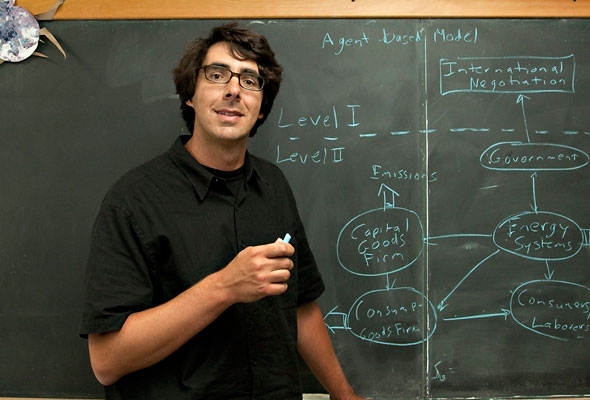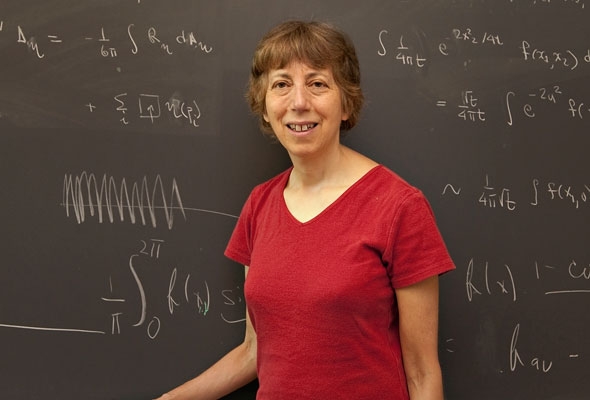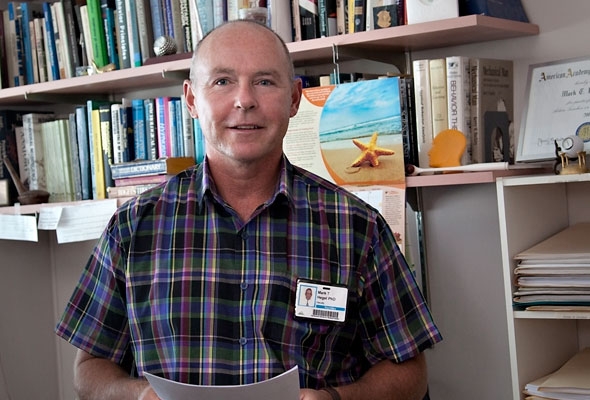Dartmouth researchers were awarded $11.2 million during May, including $4.2 million in new and competing awards. View the complete list of awards, as reported by the Office of Sponsored Projects. Here, Dartmouth Now spotlights three investigators and their work.
Mark Borsuk, assistant professor of engineering, Thayer School of EngineeringNational Science Foundation “A Multi-level, Agent-based Model for Identifying the Factors that Enable or Constrain International Climate Change Negotiations”

Accord: Many of the models used to analyze global climate policy ignore the fact that there are diverse international and domestic stakeholders, each with their own interests. “We are particularly interested in addressing the question of which negotiation structures, treaty types, and policy options facilitate parties in reaching an international climate agreement, given obligations to their constituents back home,” Borsuk says.
New approach: Borsuk’s group recently adapted a popular integrated assessment model to better represent the uncertainties of climate change and society’s attitude toward the risk of unexpected consequences. “This effort yielded some important insights,” Borsuk says, “but we have also come to recognize the shortcomings of such models. That is what led us toward the multi-level, agent-based model we are currently pursuing.”
Teamwork: “We have a number of project participants at Dartmouth and beyond, including in Italy and Norway. Our research team is saddened by the death of project collaborator, Stephen Schneider, Professor of Biology at Stanford University, on July 19, 2010. His passing is a tremendous loss for us, the climate-science community, and the earth at large.”
Carolyn Gordon, the Benjamin Cheney Professors in MathematicsNational Science Foundation “Workshop on Spectral Problems”

International experts: This grant, Gordon explains, provided partial support for an International Conference on Spectral Geometry held at Dartmouth July 19 through 23, 2010. The conference was preceded by two days of mini-courses and brought together approximately 80 researchers from throughout the world.
Spectral data: The primary theme of the conference was spectral geometry, which according to Gordon, “addresses the extent to which the geometry of an object, such as an (idealized) drumhead, is encoded in spectral data, such as the frequencies of the tones produced by the vibrating drum.” Gordon reports that a second theme of the conference “was a flurry of recent exciting developments in quantum ergodicity, which studies the quantum mechanical counterpart of chaotic behavior in a classical Newtonian mechanical system.”
Teamwork: In addition to Dartmouth Assistant Professor of Mathematics Alex Barnett, fellow conference organizers included Peter Perry of the University of Kentucky and Alejandro Uribe of the University of Michigan.
Mark Hegel, associate professor in psychiatry and community & family medicine, Dartmouth Medical SchoolNational Cancer Institute “Participation Restrictions in Young-Middle Adult Rural Breast Cancer Survivors”

Back to life: Women recently treated for breast cancer often experience lasting difficulties returning to their normal routines due to lingering side effects of their cancer treatment. “This project will develop and preliminarily evaluate an intervention to assist them to regain their valued activities of daily living,” Hegel says.
Focus on quality: Hegel’s project builds on the research conducted by the Patient-oriented Cancer Survivorship Research group of Norris Cotton Cancer Center’s Cancer Control Program. “Our research is focused on improving the quality of life and quality of care for cancer patients and their families from the time of diagnosis through treatment, recovery, and at the end of life,” he says.
Teamwork: At Darmouth, Hegel works with Kathleen D. Lyons, ScD, research assistant professor in psychiatry; Marie Bakitas, DNSc, associate professor in anesthesiology and psychiatry; Jay G. Hull, professor in psychological and brain sciences; Peter Kaufman, MD, associate professor in medicine; and Stefan Balan, MD, assistant professor in medicine.

